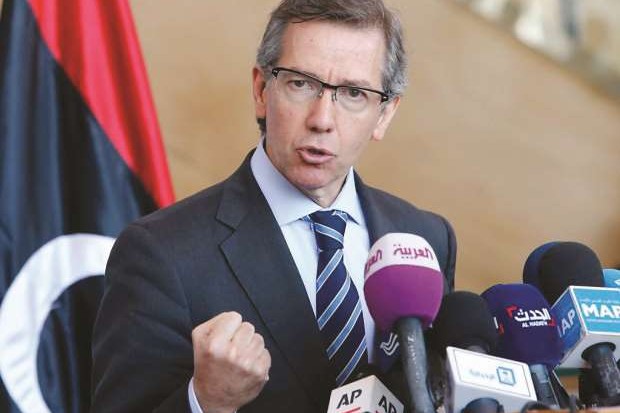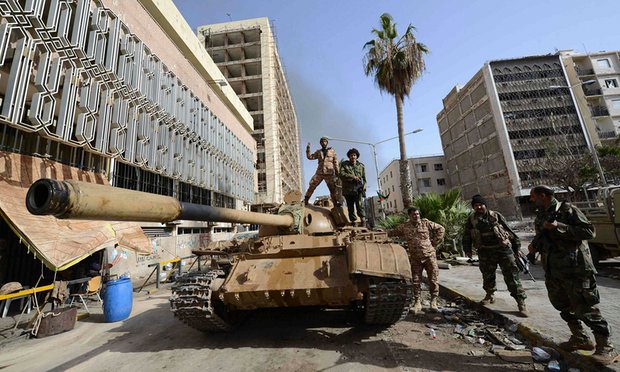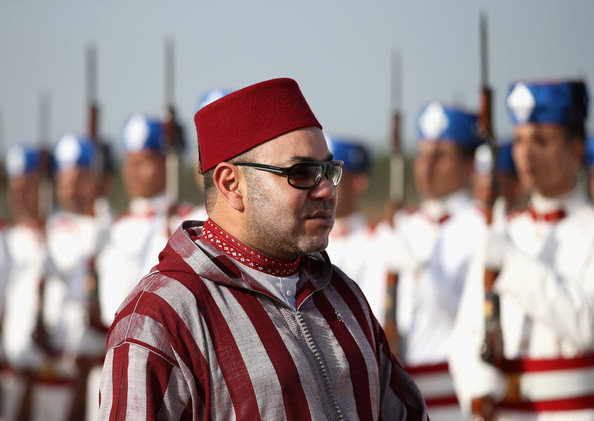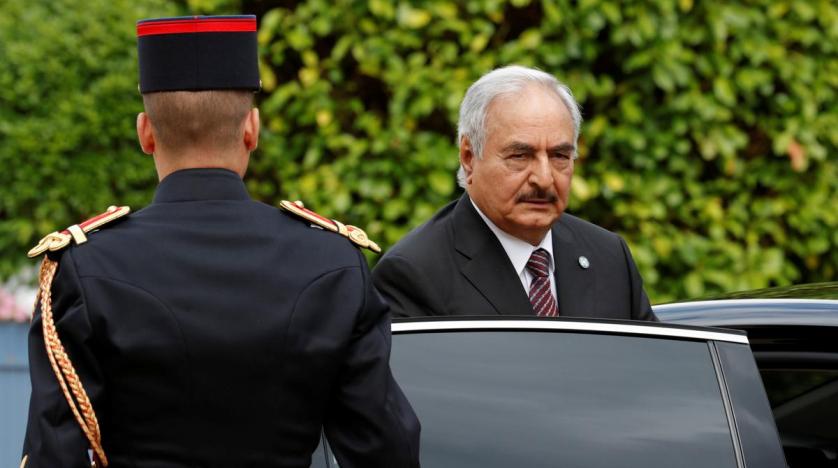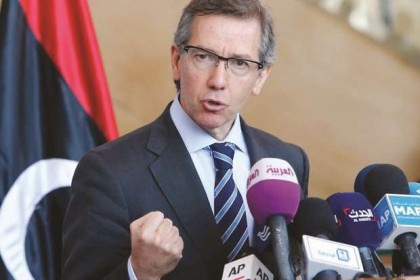 The ongoing Libyan dialogue in Geneva may yield a quick agreement by September 20 according the UNMIL Chief Bernardino Leon who praised the climate of talks.
The ongoing Libyan dialogue in Geneva may yield a quick agreement by September 20 according the UNMIL Chief Bernardino Leon who praised the climate of talks.
The UN envoy for the Libyan political crisis sounded very optimistic on the second day of the dialogue that has registered the participation of the hardline General National Congress (GNC) which finally took part in the talks.
“There is great likelihood to reach an agreement in the coming days. We cannot afford, Libya cannot afford to miss such an opportunity,” Leon said.
“We are talking about an agreement that should be inked by September 20 and come into force on October 20,” he added.
The talks suffered a blow after the GNC refused to ink the July draft, claiming UNMIL chief refused to incorporate its amendment demands.
GNC, which joined the Geneva talks after it reorganized its negotiating team, also expressed confidence for a future agreement after its team met up with Leon.
The GNC’s new team leader, Awad Abdel Salek, hailed UNMIL’s readiness to listen to GNC’s demands in order to set the talks process on a steady path.
He said the five-hour meeting with Bernardino Leon discussed all issues of concern to the GNC, paving the way to reach a consensus formula quickly.
Salek described the meeting as “productive and fruitful” and said Leon came up with new ideas and procedures to incorporate the GNC-proposed amendments in the draft that has been initialed by several other Libyan factions, including the internationally-recognized Libyan government.
Meanwhile, Libyan neighboring countries namely Algeria, Chad and Niger issued a joint statement calling for the resolution of the Libyan crisis as such a resolution is important for the stability of the region.
Libya needs a central government to solve its challenges, insure the country’s territorial integrity and preserve its unity and the cohesion of its people, the statement said.
Since the fall of Muammar Gaddafi, Libya has been torn apart and ruled by two different governments, the internationally recognized Tobruk government and the Tripoli government. The two rival governments are supported by two different parliaments; the House of Representative supporting the Tobruk government and the GNC backing the Tripoli government.
The country has also become safe-haven for terrorist organizations namely the IS which has found a foothold in the lawless country where it has set up terrorist training camps becoming a major threat not only for Libya itself but also for the entire region.
Three of the gunmen who massacred tourists in Tunisia’s deadly attacks in Bardo in March and in Sousse in July are all said to have been trained in Libya.
